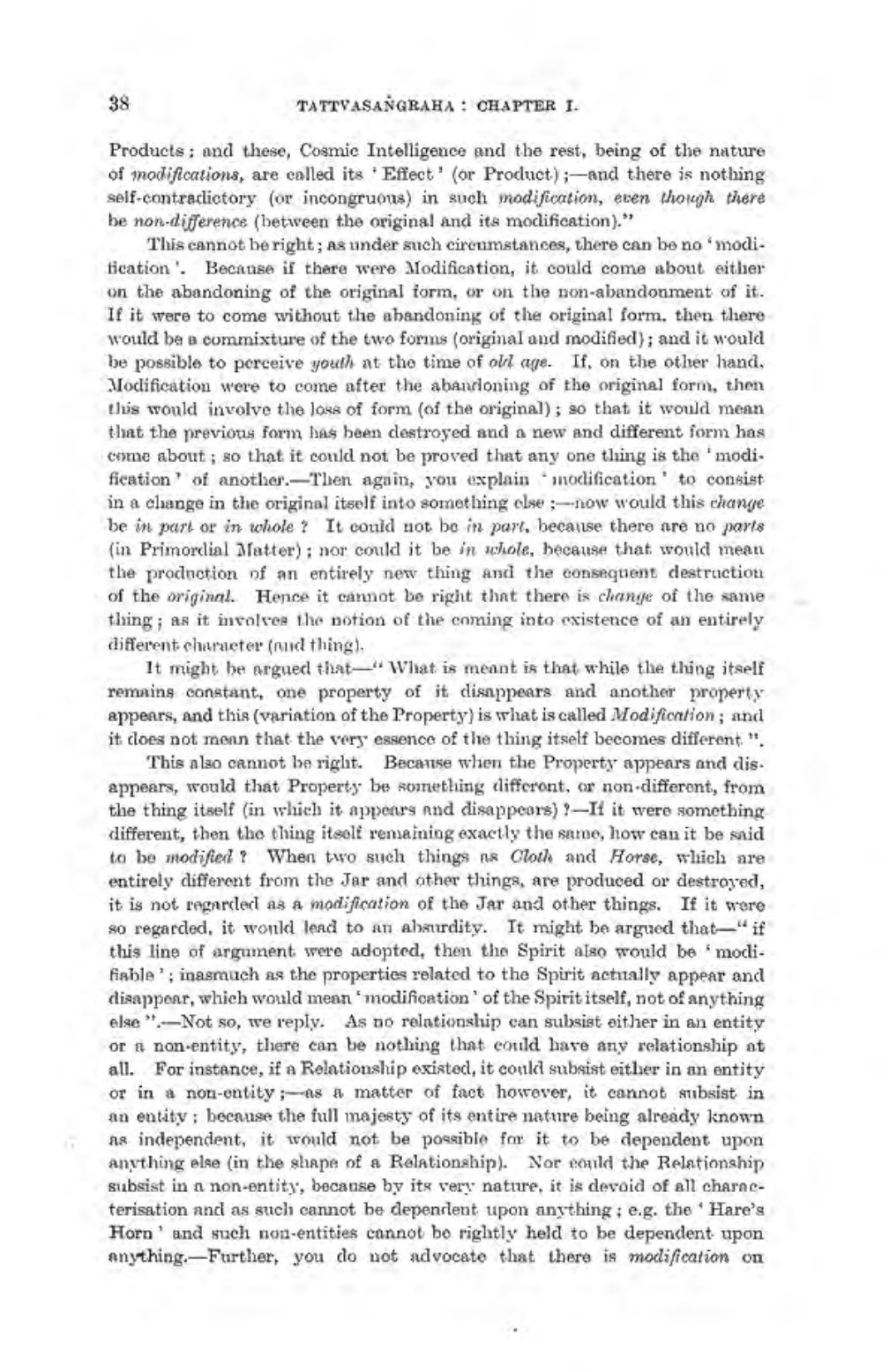________________
TATTVASANGRAHA : CHAPTER I.
Products: and these, Cosmic Intelligence and the rest, being of the nature of modifications, are called its Effect' (or Product);--and there is nothing self-contraclictory (or incongruous) in such modification, even though there be non-difference (between the original and its modification)."
This cannot be right; As under such circumstances, there can be no modi. tication. Because if there were Modification, it could come about either on the abandoning of the original form, or on the non-abandonment of it. If it were to come without the abandoning of the original form, then there would be a commixture of the two forms (original and modified); and it would be possible to perceive youth at the time of old age. If, on the other hand, Modification were to come after the abandoning of the original form, then this would involve the loss of form of the original); 30 that it would mean that the previous form has been destroyed and a new and different form has come about ; 90 that it could not be proved that any one thing is the 'modi. fication of another. Then again, you explain noclification' to consist in a change in the original itself into something else ;- now would this change be in part or in whole ? It could not be in part, because there are no parts (in Primordial Matter); nor could it be in chole, because that would mean the prodnotion of an entirely new thing and the consequens destruction of the original. Hence it cannot be right that there is change of the same thing; as it meolree the potion of the coming into existence of an entirely different character and thing).
It might be argued that—"What is meant is that while the thing itself remains constant, one property of it disappears and another property appears, and this (variation of the Property) is what is called Modification; and it does not mean that the very essence of the thing itself becomes different. ".
This also cannot be right. Because when the Property appears and dis. appears, would that Property be something differont, or non-different, from the thing itself in which it appears and disappears)!--If it were something different, then the thing itself remaining exactly the same, how can it be said to be modified? When two such things ns Cloth and Horse, which are entirely different from the Jar and other things, are produced or destroyed, it is not regardlecl as a modification of the Jar and other things. If it were so regarded, it wonld lead to an absurdity. It might be argued that-"if this line of argument were adopted, then the Spirit also would be modi. fiable'; inasmuch as the properties related to the Spirit actually appear and disappear, which would mean modification of the Spirit itself, not of anything else " Not so, we reply. As no relationship can subsist either in an entity or a non-entity, there can be nothing that could have any relationship at all. For instance, if a Relationship existed, it could subsist either in an entity or in a non-entity ;-as a matter of fact however, it cannot subsist in an entity: because the full majesty of its entire nature being already known As independent, it would not be possible for it to be dependent upon Anything else in the shape of a Relationship). Nor could the Relationship subsist in a non-entity, because by its very nature, it is devoid of all characterisation and as such cannot be depenrlent upon anything : e.g. the Hare's Horn' and such non-entities cannot be rightly held to be dependent upon anything.–Further, you do not advocate that there is modification on




